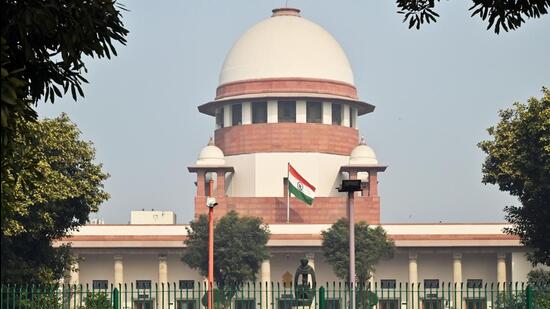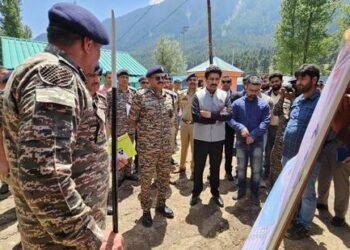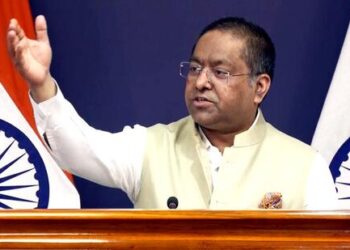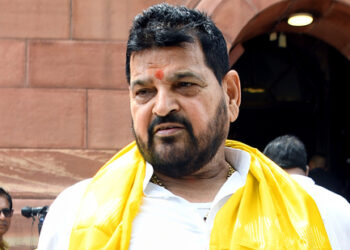The Supreme Court is set to hear on Tuesday a petition calling for the imposition of President’s Rule in West Bengal in light of recent communal violence in Murshidabad and other districts. The petition, filed by West Bengal residents Devdutta Maji and Mani Munjal, alleges targeted attacks on Hindus following protests against a new Waqf law introduced in the state this month.
Advocate Vishnu Shankar Jain, representing the petitioners, urged the bench to take up the plea alongside earlier petitions related to post-2021 election violence in the state. The bench, comprising Justices Bhushan R Gavai and AG Masih, questioned the scope of such a direction, stating, “You want us to issue a writ of mandamus to impose President’s Rule? As it is, we are being blamed for encroaching upon legislative and executive functions.”
The court’s remarks followed a recent political backlash, particularly from Vice President Jagdeep Dhankar, who criticized the judiciary for allegedly overstepping its mandate. Dhankar had earlier condemned the April 8 verdict that imposed a three-month deadline for Presidential assent on state bills, calling the court a “super Parliament” and its Article 142 powers a “nuclear missile.”
The petitioners have requested the deployment of central forces in affected areas and a direction to the state government to uphold the life, liberty, and dignity of citizens. They also sought a report under Article 355 of the Constitution, which mandates the Union’s responsibility to protect states from internal disturbances and ensure constitutional governance.
The plea highlights multiple incidents, including communal clashes in Murshidabad, stone-pelting during Holi in Birbhum, and violence during Ram Navami celebrations in Kolkata on April 6. It also refers to the ongoing unrest in Sandeshkhali and the serious allegations of sexual assault and land grab against Trinamool Congress leader Shahjahan Sheikh.
The petition seeks the formation of a three-member inquiry panel led by a former Supreme Court judge to investigate the incidents of violence from 2022 through April 2025.
While the BJP lawmaker Nishikant Dubey accused the judiciary of fuelling religious strife with its observations on the Waqf law, BJP chief JP Nadda distanced the party from such comments, reaffirming the BJP’s respect for the judiciary.
The hearing is likely to intensify the debate over judicial intervention in matters of governance, even as the situation on the ground remains tense.








 India
India












